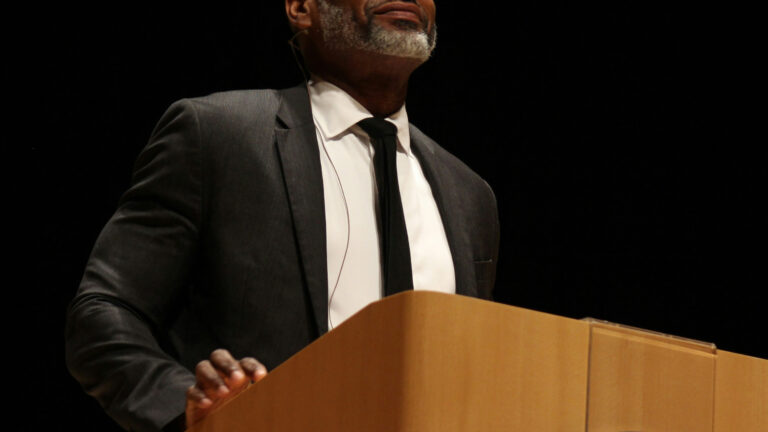I grew up in a rural village in Zimbabwe and one thing I know is that we Africans take the medal when it comes to superstitions. If you go to the traditional healer, no matter the issue, they normally prescribe something tangible: a bit of oil; water collected at a waterfall; tying a string around your waist; or putting a piece of cloth under your pillow. It is believed, then, that these objects will protect you from the evil spirits, bringing an end to misfortune and opening up seasons of blessing. Sadly, the same way of thinking has made its way into the African church. It may be done with a bit of prayer and sometimes fasting, but many Christians still put their hope in objects, from anointing water and oil to wrist bands, and even car stickers.
We Africans take the medal when it comes to superstitions.
In this article I want to draw your attention to a story in John 5:1-18, where God works through the powerful word of his Son to heal a man. Though this man expected various superstitious means, God’s work is fairly straightforward. By doing this I hope to enlarge and strengthen our faith, drawing our attention away from magical items or objects and back to the God who’s able to save.
The Purpose of John’s Gospel and Jesus’ Signs
At the beginning of John 5, Jesus is back in Jerusalem for a feast. He goes to a pool by the Sheep Gate, called Bethesda (not Bethsaida, a town in Galilee). At the pool, Jesus meets a man who hadn’t walked for 38 years, though we aren’t told if he’s paralysed or lame. What we are told is how Jesus encounters and heals him. This is the fourth miracle in John’s Gospel, which he calls signs. John intentionally selected specific signs to help us understand Jesus as the Messiah, the Son of God, the giver of life (John 20:30-31).
Of all his miracles, why did John think this one should make the list?
Thus the question is this: of all his miracles, why did John think this one should make the list? How does it serve as a sign? What does this healing teach us about Jesus and the salvation he brings? I’m going to answer those questions by looking at the passage in three sections, considering what happened: before, during, and after the healing.
Before: However Hopeless, Salvation Is Available
The situation by the pool of Bethesda was hopeless. It’s heartbreaking to imagine yourself standing there, let alone being one of the many sick people waiting around by the pool, for the water to be stirred up and then jostling towards the pool because they believed that the first one to get into the water would be healed. He was enslaved to his superstitions. He’s unable to look up and see the Saviour.
One man was there who had been an invalid for 38 years. When Jesus saw him lying there he knew that he had already been there a long time (John 5:5-6). His hopeless condition was compounded by him having no family or friends to help him into the pool when the water stirred (John 5:7). And after such a long time, maybe he had accepted that he’d never walk again. But when Jesus came, his history doesn’t matter. All he asked the man is, “Do you want to be healed?” (John 5:6).
Sometimes we limit God. We encounter a dire situations and think it’s too difficult for God.
How could Jesus ask so boldly? At this point we should remember John’s prologue. “All things were made through him, and without him was not any thing made that was made. In him was life and the life was the light of men” (John 1:3-4). Is anything too hard for him, for the Creator God? Sometimes we limit God. We encounter a dire situation and think it’s too difficult for God. I confess that sometimes, even as I pray, I doubt God too. When we face a really difficult situation, do we first turn to God in prayer, trusting that our good and all-powerful God is able to do what no man can do?
Let’s remember, for the moment, that this healing is a sign. It’s pointing to something greater, more important than physical healing. Jesus brings spiritual healing! Even when all hope has been lost. This doesn’t mean he does not care about our physical needs or sickness. He does. But if we only see Jesus as a physical healer, we’re failing to see him for who he really is. He is the giver of perpetually flowing, living water (John 4:13-14). Eternal life. Whatever you’re facing, come to Jesus in faith.
During: Salvation By Jesus’ Word Not Superstitions
Listen to the man’s response to Jesus’ question: Do you want to be healed? “Sir, I have no one to put me into the pool when the water is stirred up, and while I am going, another steps down before me” (John 5:7). Standing before his Creator and God, the man is still hoping for healing from the pool.
Standing before his Creator, the man is still hoping for healing from the pool.
Just like us, Africans who trust in superstitions and magical objects, the man’s hope believed in the water. Meaning if he did believe in God he restricted God’s ability to the stirring waters. When we believe God needs physical means or objects to work, we don’t know how powerful he really is. You see, this man didn’t know who was standing in front of him. If he knew this was the divine Son of God, the one through whom all things were created, the giver of life, he wouldn’t talk about getting into the water.
So, what did Jesus do? As always, he spoke his powerful word! “‘Get up, take up your bed, and walk.” And at once the man was healed, and he took up his bed and walked” (John 5:8-9). No helper needed. No water needed. Just Jesus’ word. His power. Remember, again, this is a sign. John is pointing us to Jesus’ life bringing power; the divine power of Jesus’ words to restore life.
After: Salvation Doesn’t Mean We Won’t Suffer
We only learn later that this healing occurred on the Sabbath (John 5:9). The Jewish leaders weren’t happy, but because the healed man had carried his mat on the Sabbath, even though he hadn’t broken any biblical regulations. But the Jewish rabbis wrote their own book of laws called the Mishnah, expanding on Old Testament laws. This prohibited 39 classes of work on the Sabbath. One of those was carrying an object.
When questioned about this, Jesus replies, “My Father is working until now, and I am working” (John 5:17). Then John adds, “This was why the Jews were seeking all the more to kill him, because not only was he breaking the Sabbath, but he was even calling God his own Father, making himself equal with God” (John 5:18). Ironically, they were happy to plot murder on the Sabbath. But they took issue with someone taking up his mat.
Many people pick superstitions over the Saviour.
This forms part of an escalating tension in John, between Jesus and the religious leaders. Regardless of the many signs pointing to his true identity as the Son of God, the leaders rejected Jesus. They preferred their positions of power to the Christ. They wanted their own laws rather than God’s truth. Likewise, today, many people pick superstitions over the Saviour. Thus as followers of Jesus we shouldn’t be surprised by disagreement and conflict, resentment or resistance.
We Need Much More Than Healing
As we wrap up, I hope you can see that just receiving healing or a miracle from Jesus is not enough. We see that in the way this man is portrayed. He did not recognise Jesus even when he stood in front of him (John 5:13) Though he had been healed physically, it seems he was still spiritually sick. Maybe that is why we hear Jesus charging him to change his life, to stop sinning (John 5:14).
If he continued to live in sin, he was going to miss out on the living water that Jesus gives.
What can be worse than spending 38 years sick and unable to walk, with no family, no friends, and no hope? Well, if he continued to live in sin, he was going to miss out on the living water that Jesus gives. He was going to miss out on eternal life with God, in the new heavens and new earth, where there is no sickness (Revelation 21:1-5). I hope and pray we all grow in our knowledge of Jesus as we maintain the discipline of listening to his powerful Word daily.












